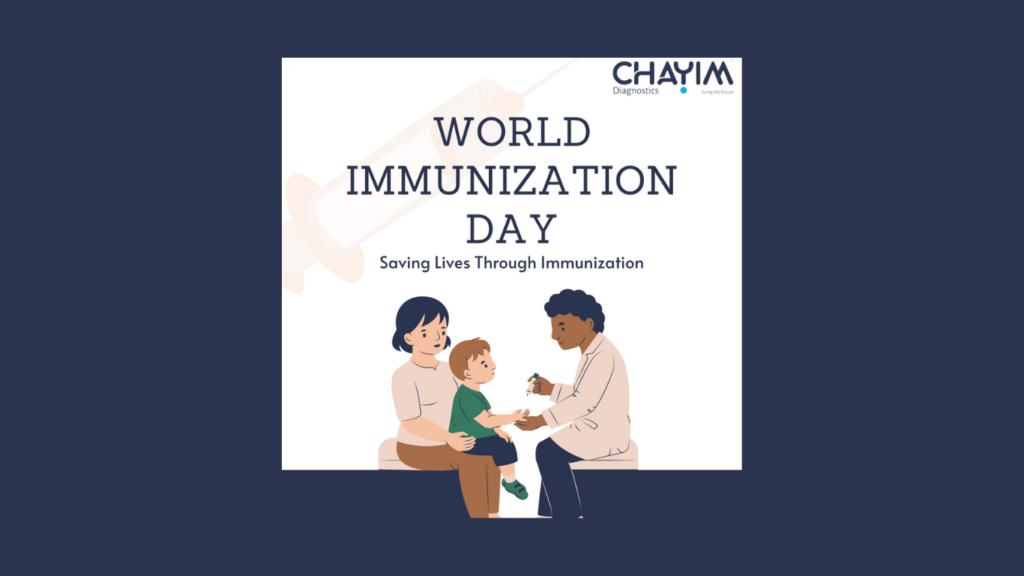WORLD IMMUNIZATION DAY: SAVING LIVES THROUGH IMMUNIZATION

Immunization, involves administering vaccines to protect individuals from infectious diseases caused by viruses, bacteria, and other pathogens.
Vaccines contain live but denatured forms of the targeted microorganisms or their toxins, prompting the immune system to produce antibodies and immune memory cells. This immune response equips the body to recognize and fight off the actual disease-causing agents if encountered in the future, providing immunity and preventing illness.
Immunization offers many benefits that contribute to individual health, public health, and global well-being. They include; Disease prevention, Long-term benefits, Herd immunity, Global security, etc.
It has been noticed that some individuals reject immunization due to fear, anxiety or various superstitions. Not Immunizing yourself and your child can lead to various Dangers which includes;
Increased Disease Risk:
Not immunizing your child leaves them susceptible to vaccine-preventable diseases, exposing them to the risk of infection, complications, and severe illness. Unvaccinated individuals contribute to disease transmission within communities.
Outbreaks and Epidemics:
Low vaccination rates can lead to disease outbreaks and epidemics, especially in close-knit communities or areas with pockets of vaccine hesitancy. Outbreaks of measles, pertussis, and other diseases have occurred due to declining immunization rates.
Public Health Impact:
Non-immunization jeopardizes public health achievements and undermines efforts to control and eliminate vaccine-preventable diseases. It hinders progress towards global disease eradication goals and weakens herd immunity.
Health Disparities:
Children who have not received immunizations experience differences or inequalities in their health outcomes compared to those who have been immunized. These differences can include higher risks of contracting vaccine-preventable diseases, experiencing severe illness or complications from infections, and facing challenges in accessing timely healthcare interventions.
Complications and Consequences:
Vaccine-preventable diseases can lead to serious complications, such as pneumonia, encephalitis, meningitis, paralysis, birth defects (e.g., congenital rubella syndrome), and death. Not immunizing your child places, them at higher risk of experiencing these adverse outcomes.
Some Common Vaccines;
Several types of vaccines are recommended to protect against vaccine-preventable diseases. They include but not limited to;
- Rotavirus vaccine
- Hepatitis A vaccine
- Meningitis Vaccine.
- Influenza (Flu) vaccine
- Varicella (Chickenpox) vaccine.
- BCG vaccine (For Tuberculosis)
- IPV (Inactivated Poliovirus) vaccine
- MMR (Measles, Mumps, Rubella) vaccine.
- PCV13 (Pneumococcal Conjugate) vaccine
- DTaP/IPV/Hib/HepB (Diphtheria, tetanus, pertussis (whooping cough), polio, Hemophilus influenzae type b (Hib) and hepatitis B vaccine) (6-in-1 vaccine)
- HPV (Human Papillomavirus) vaccine.
- Depending on travel plans, occupational risks, or specific health conditions, individuals may need additional vaccines such as the yellow fever vaccine, typhoid vaccine, rabies vaccine, or others recommended by healthcare providers
Chayim Diagnostics encourages parents to actively consult with healthcare professionals before vaccinating their children. Additionally, health organizations administering vaccines to ensure the correct vaccines are administered, avoiding expired or invalid vaccines, as these can significantly impact our overall well-being.


Responses